 Petzlover
Petzlover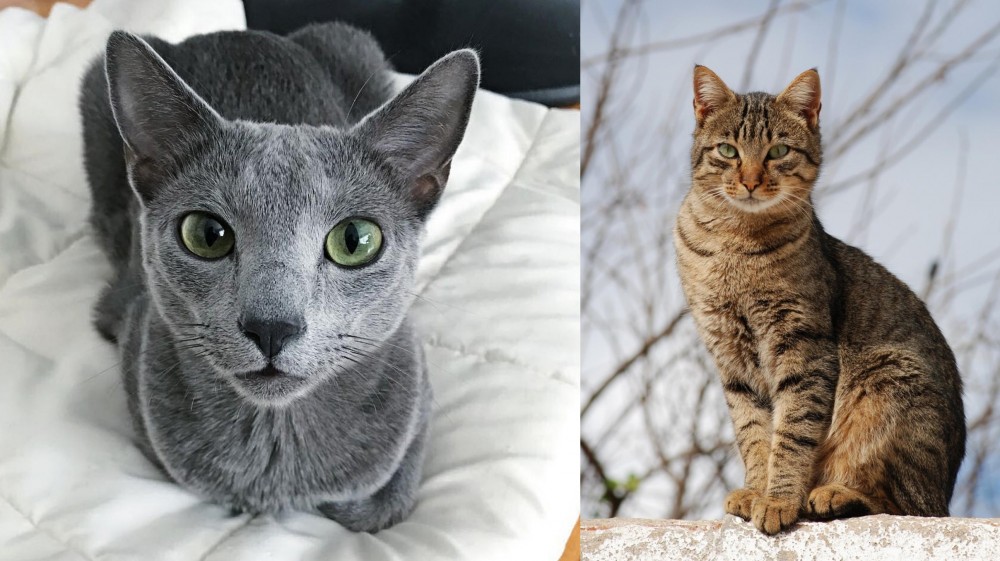 Blue Russian is originated from Russia but Tabby is originated from United Kingdom. Both Blue Russian and Tabby are having almost same weight. Both Blue Russian and Tabby has same life span. Both Blue Russian and Tabby has same litter size. Blue Russian requires Low Maintenance. But Tabby requires Moderate Maintenance
Blue Russian is originated from Russia but Tabby is originated from United Kingdom. Both Blue Russian and Tabby are having almost same weight. Both Blue Russian and Tabby has same life span. Both Blue Russian and Tabby has same litter size. Blue Russian requires Low Maintenance. But Tabby requires Moderate Maintenance
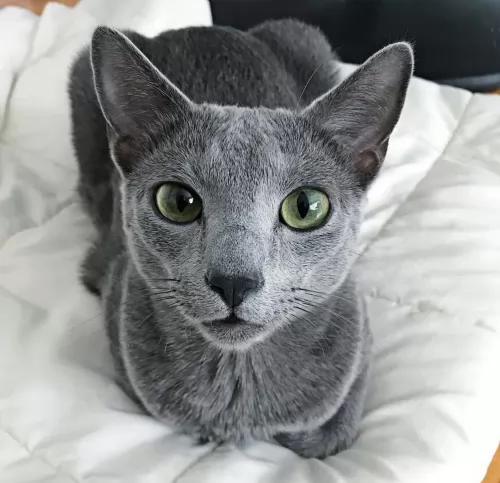 The Blue Russian is a rare cat and not much is known about its origins, but it is believed that the cat comes from northern Russia.
The Blue Russian is a rare cat and not much is known about its origins, but it is believed that the cat comes from northern Russia.
The Cat Fanciers Association believes that the cat descended from cats kept by Russian Czars. Research tells us that there is no mention of the Blue Russian until the 19th century. The Russia Blue made its first public appearance in 1875, being exhibited at London’s Crystal Palace as the ‘Archangel Cat’.
By 1912, the Russia Bue was given its own classification after its introduction to the USA in the early 1900s.
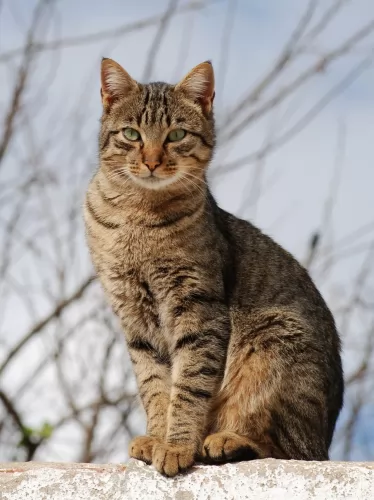 The Tabby isn’t a cat breed but rather a certain cat pattern. So the Tabby has lots of different coat colors and patterns and the cat comes in different sizes.
The Tabby isn’t a cat breed but rather a certain cat pattern. So the Tabby has lots of different coat colors and patterns and the cat comes in different sizes.
You get the mackerel Tabby, the classic Tabby, the spotty Tabby and the ticked Tabby. The Tabby is a domestic cat. It is thought that today’s Tabby’s originated from the African wild cat because the markings are so similar.
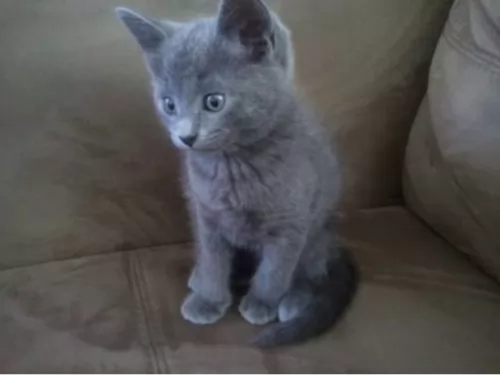 The Russian Blue is a medium-sized cat with a long, finely-boned boy. It is a slender cat, but he appears larger because of his dense double coat.
The Russian Blue is a medium-sized cat with a long, finely-boned boy. It is a slender cat, but he appears larger because of his dense double coat.
He weighs in the region of 3 – 6kg. In spite of the dense and luxurious short silvery coat, the cat doesn’t shed much. The coat can in fact be a silvery shade to a dark slate grey. The eyes are a beautiful green, the ears widely spaced and slightly rounded at the top.
The Russian Blue is a sweet-tempered cat who becomes attached to his human owner and who will even follow his owner much like a dog.
This particular cat breed may be quite shy, but he becomes social around his family members and may even be reluctant to share time with strangers.
He also doesn’t mind spending some time alone if you have to work. Curious and intelligent the Russian Blue is somewhat reserved but he makes a great companion as he is sensitive to his owner's moods.
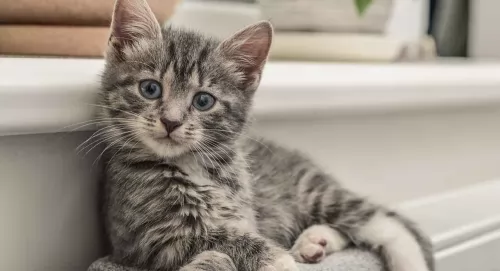 The Tabby is any domestic cat. They’ve got a distinctive 'M' shaped marking on their forehead.
The Tabby is any domestic cat. They’ve got a distinctive 'M' shaped marking on their forehead.
The Tabby cat isn’t a breed of cat but actually a coat type and in fact, there are quite a few cat breeds with the Tabby pattern.
Tabby is a color pattern in other words and it means you will find stripes, spots, and whorls of color. Tabby cats can range in size because of the different breeds. They can be medium to large and weight between 3 and 7kg.
The eye and ear shape will also vary according to the different breeds as well as the thickness of the tail.
Your Tabby is a friendly, social cat. He makes an excellent pet and companion. The orange and ginger tabbies are more feisty and strong-willed. These cats cat can be any personality really and you might have an aloof cat but you could also have a highly social, vocal Tabby.
Most times you will get an active, playful, friendly cat that will love the company of his human family.
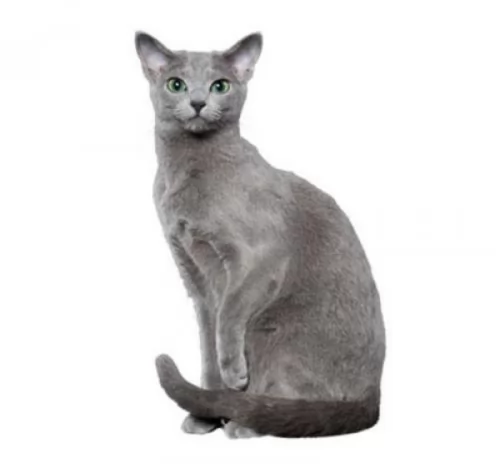 Russian blue cats are such intelligent creatures and he will require some mental stimulation because of it.
Russian blue cats are such intelligent creatures and he will require some mental stimulation because of it.
He loves mealtimes, but remember to not overfeed him as this shortens his lifespan.
He is a vocal cat and will tell you when he is hungry or he wants to play.
These cats don’t like too many changes so keep things the same for him.
When you try to keep your lovely Blue Russian happy, you’ll be rewarded by having a fantastic feline companion.
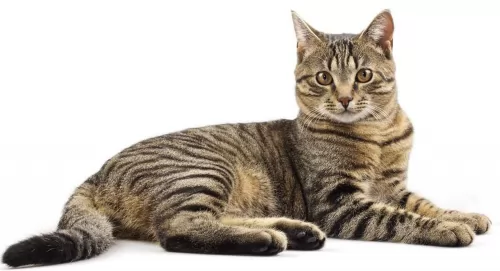 When you bring a Tabby cat into your home, you can't tell what personality he will have. A lot depends on the lifestyle you provide him with.
When you bring a Tabby cat into your home, you can't tell what personality he will have. A lot depends on the lifestyle you provide him with.
Some Tabby cats are social and friendly while others are more shy. One thing is sure, they all thrive on the love and attention of their human families. This popular cat is guaranteed to make you a most wonderful pet and companion.
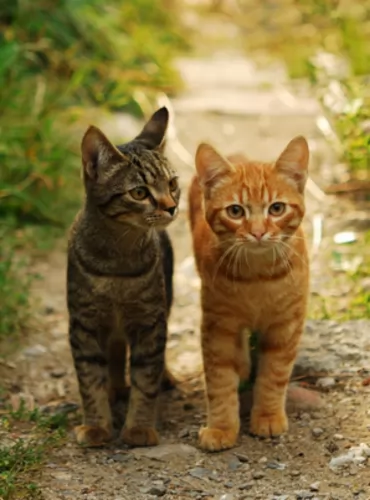 Many cats can develop liver and kidney troubles as they get older so it’s important to visit a vet regularly in order to make sure they are in good health.
Many cats can develop liver and kidney troubles as they get older so it’s important to visit a vet regularly in order to make sure they are in good health.
Most domesticated tabby cats live for 12 to 15 years and this means you can enjoy many years of good friendship from your Tabby.
The liver is an important organ with a host of functions. We know it plays an important role in removing toxic substances from the blood. Because this organ works to rid the body of so many different substances, it can become damaged.
Liver disease results in inflammation, which is known as hepatitis. If left, it can lead to loss of function because of scar tissue. Luckily, liver disease in cats can be treated and managed,
Age, certain diseases and certain breeds of cats are more susceptible to liver disease. Obesity too, can contribute to liver disease. The signs of liver disease are weight loss, increased thirst, vomiting, drooling, jaundice and loss of appetite.
If your cat is diagnosed with liver disease, speak to your vet about a special diet for your cat.
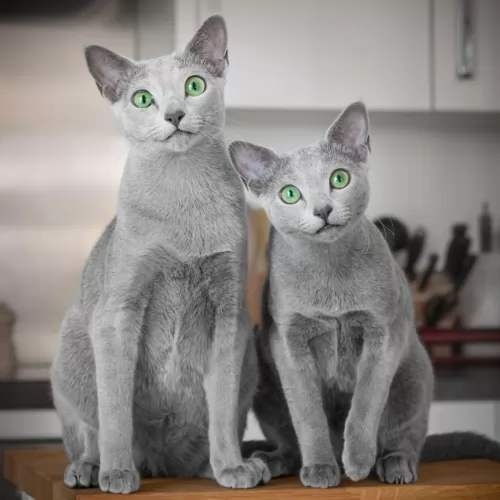 Part of caring for a cat as a responsible pet owner comes from feeding your pet. The Russian Blue is a cat that enjoys his food so you will have to look out for overfeeding.
Part of caring for a cat as a responsible pet owner comes from feeding your pet. The Russian Blue is a cat that enjoys his food so you will have to look out for overfeeding.
A cat that is overweight can start developing joint problems and diabetes. Rather stick to scheduled meals so that you can know exactly what your feline pet is getting. Such a beautiful cat needs the best food there is to keep the coat shiny and healthy and to prevent illness.
Always read the food labels to ensure the best ingredients and the right portion sizes. Make sure your cat gets food that is meat protein-rich as a cat is a carnivore.
Water is another important part of your Blue Russian’s diet. Fresh cool water should be available for your cat night and day. Water bowls are good but a water fountain is a tantalizingly attractive way for your pet to be attracted to drinking more water.
Make sure that you rake up all your cat’s droppings from the litter box every day as the Russian Blue is a hygienic cat and wants a clean litter box. Make sure the litter box is in a nice quiet spot for your cat.
The cat has a dense coat but isn’t a heavy shedder and requires very little grooming.
Ensure a decent bed for your Bombay cat. Any soft cat bedding will do, and while some cats like a simple flat mattress-type bedding arrangement, other cats like the idea of getting into a bed that provides some privacy.
You just have to find yourself a decent pet shop because when you do, you’ll find a host of soft, warm, fully washable blankets and pillows for your pet. Once you’ve decided on the right bed and a nice quiet spot, your cat will have a complex issue sorted out as some cats can be fussy with their sleeping arrangments.
Make sure your cat is neutered or spayed to avoid unwanted kittens. Neutering offers health benefits, reducing the risk of different cancers. Your cat also no longer has the desire to fight over mates and territory.
 When your cat is a Tabby, he could have short or long fur, and a weekly brushing will be necessary to remove dead hairs and dust from the coat.
When your cat is a Tabby, he could have short or long fur, and a weekly brushing will be necessary to remove dead hairs and dust from the coat.
While you brush your cat, feel for any irregularities such as lumps or cuts. A lump should be examined by the vet.
As already mentioned, good food is key to good health, and as your cat is a carnivore, he will require meat. There are many excellent cat food manufacturers who produce cat food with all the nutrients your feline friend requires.
If your pet needs to be transported anywhere, such as to the vet, make sure he can be carried safely by putting him in a cat carrier box.